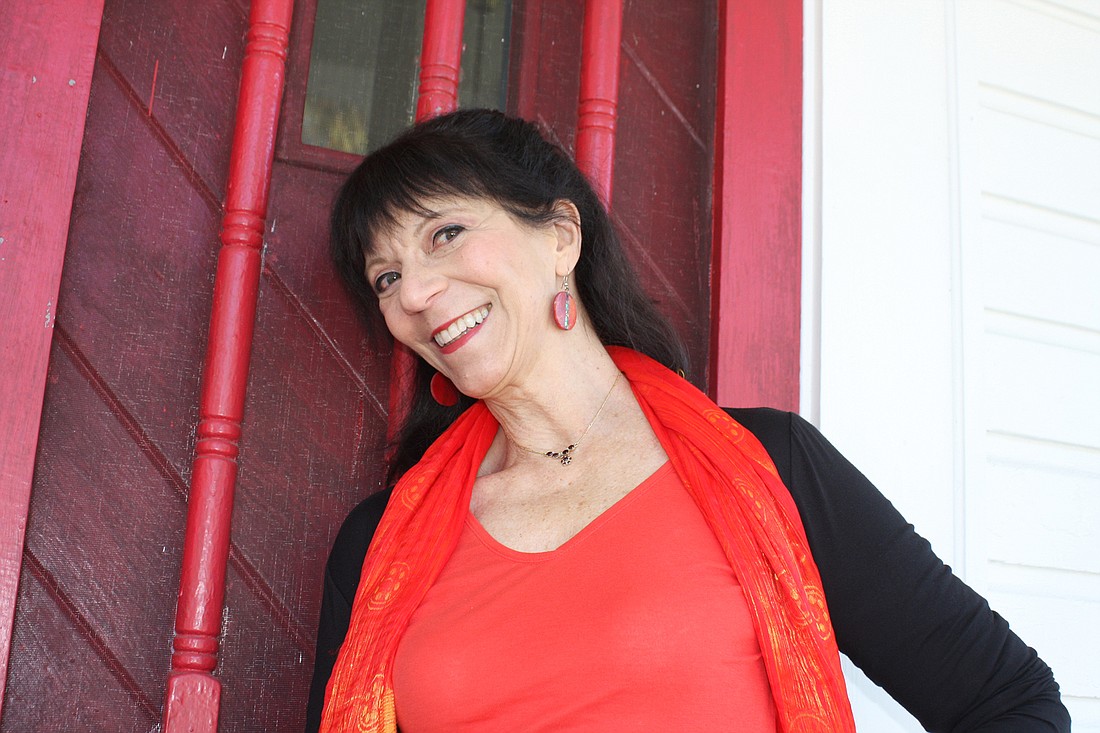- November 24, 2024
-
-
Loading

Loading

Carolyn Michel. Anybody who enjoys live theater in this town knows that name. The mercurial actor has made a name for herself in every role you can think of. This weekend, she’ll be portraying a sampler of her favorite characters (both real and fictional) as part of the upcoming SaraSolo Festival, in a performance directed by her husband, Howard Millman. So, how does she keep all those personalities straight? We wondered — so we asked.
What can we expect at the SaraSolo Festival?
It’s a piece I put together called “Women I’ve Loved.” It’s a medley of my favorite characters from the one-woman plays I’ve performed. I’ll be doing little snippets of Dorothy Parker, Ann Landers, Rose from the play of the same name; and Bev and Grandma Rose from “Family Secrets.” I can’t wait to revisit them.
What do these characters have in common?
What I love about them is they’re very substantive people — strong women with a sense of ironic humor that gets them through the rough spots in life.
Is that something they have in common with you?
Well they’re not unlike me. Obviously, when you play a character you find something of yourself in them. So yes, I gravitate toward those women, but I also gravitate to the dog Sylvia, which I played a long time ago. She’s carefree and funny. Dogs can freely express what they want. She was not one to really want to behave.
Does a good actor need to have a split personality on some level?
Only in the sense that everybody does. We all have an inner child who wants to eat all the chocolate in the house, an overbearing inner parent saying no, and — hopefully — an adult playing referee saying, “OK, you can have one piece of chocolate if you finish your work.” We all have these different facets of our personalities. Actors may just be more aware of them. You learn to tap into the part of yourself that applies to your role. You literally put yourself in your character’s shoes.
I understanding you’ll be playing the title character in “Driving Miss Daisy” this April at West Coast Black Theatre Troupe. Put us in her shoes.
She’s aging, and she’s reached the point that her car has been taken away from her. Now she’s feeling a loss of control. Daisy’s a woman who’s always done things for herself and never had anybody help her, and she’s reluctant to have somebody help her. My point of view about her is she’s trying to doggedly cling to her independence.
A lot of people in Sarasota can relate to her.
Of course, it’s not only old people who experience that. We experience a loss of control through many different stages of our life. People do things to create the illusion of control — some people eat, some people go to the gym. Hey, it might as well be a healthy illusion! The best you can do in life is ride the roller coaster and negotiate the twists and turns as they come.
What are some memorable roles over your career?
Well, the five I’ll be doing at SaraSolo, obviously. Also, Becky Felderman of “Morning Star” and Maggie in “Hobson’s Choice” were two wonderful, very different individuals. Jane Wagner’s “The Search for Signs of Intelligent Life in the Universe” was an amazing challenge. I played 20 different characters. More recently, Aunt Silda from “Other Desert Cities”—she was another feisty woman I loved getting to know. There were so many over the years.
How do you make them all different?
That’s what’s so challenging. With each new role, I feel like I’m facing a blank canvas. I want to find the specificity of each person I’m playing and make sure they’re different from the last one. That’s true whether the role is serious or comic. And I’ve played a lot of goofy characters of late. They’re not all the same; they have different thoughts, beliefs and backgrounds. Finding that individuality is the fun, frustration, challenge and joy of playing all these different women.
So as an actor you get to meet a lot of people.
Yes, you get to explore humanity, and you also get to explore history. None of us exist outside of our time period. To play a character, you have to know the history of their era; the mores, what was going on socially and historically. You have to do your research, and bring that with you into the piece. In real life, everyone walks into a room with their entire history in place. As an actor, you have to supply that background.
What’s one example?
When I played Rose at FST, she was born in Russia in the early 20th century; grew up in a shtetl; experienced work farms, the impact of World War II, the exodus and the birth of Israel; immigrated to America, and eventually wound up in Miami in the 1980s.
She lived through most of the major events of the 20th century. I couldn’t play her without doing all that historical research and incorporating my knowledge in that experience. If you don’t do your homework, it shows.